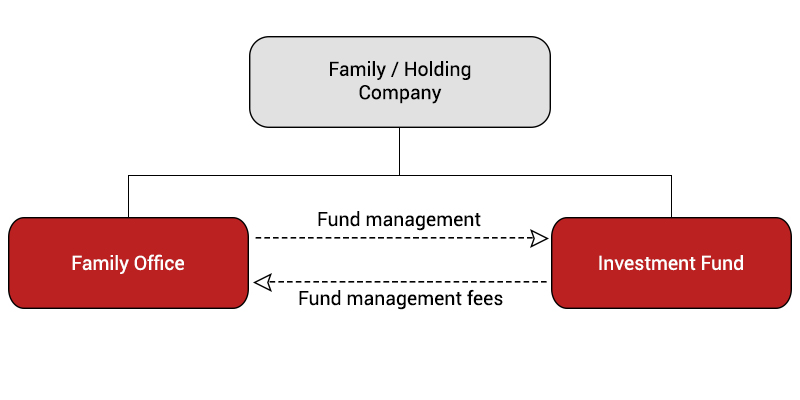Two Types of Transfer of Property Ownership as a Gift in Singapore
This article discusses the two different ways of gifting (transferring) property in Singapore, during the benefactor's lifetime, and by means of a will after the benefactor has passed on
Given that Singapore is an extremely wealthy country, one of the wealthiest in the world in fact, there is ample reason to think that someone might be willing to give away property in Singapore.
It might be one spouse giving the other spouse ownership of a flat or transferring a piece of property to one or more other loved ones.
Or a wealthy property owner might decide to transfer one or more of his/her properties to his/her child and their spouse as a wedding gift. He/she may do this, so that his/her child will have the security of owning property during their lifetime. But what is most common, is the practice of bestowing property on loved ones in a will that will be executed after he/she passes away.
In Singapore, this type of transfer of ownership is typically done in two different ways:
- By means of a gift that is given during the benefactor’s lifetime, which is called an inter vivos gift
- By means of a gift that is given after the benefactor passes away, according to their will
Both ways of giving property away in Singapore are quite prevalent, but could unforeseen issues arise? Or are there risks involved when you give away property in either of these ways?
Going back to basics, we need to ask whether there are any legal problems that could arise from giving away property in Singapore. Also, are you allowed to give your HDB flat to someone else, or can you only give away private property?
Table of Contents
Transferring Property as a Gift During the Benefactor’s Lifetime
Transferring Property by Means of a Will After the Benefactor has Died
Let’s take a look at both situations:
Transferring Property as a Gift During the Benefactor’s Lifetime
There is nothing illegal about giving away property in Singapore without being financially compensated for it. This is called an inter vivos gift and it’s perfectly legal under certain circumstances. You do this by executing a Deed of Gift between the two parties, the benefactor and recipient.
Can you give away HDB flats?
The situation for HDB flats is a little more problematic. You are only allowed to transfer ownership in an HDB flat to people in your immediate family, but they must meet specific eligibility conditions and requirements. In fact, the rules governing the transfer of ownership in HDB flats became more restrictive in 2016. Owners who want to give their ownership in an HDB flat to a family member can now only do so if one of six particular situations exist, including financial hardship and divorce.
Although it is possible to give someone your ownership in private property, this can be risky. There are issues that could arise from doing this, which would likely be of concern to most people, unless they were a real estate professional or lawyer.
Was the property bought with the help of CPF funds and/or a mortgage loan?
If you bought your property outright, there are less things to consider if you decide to give it away.
However, a lot of people in Singapore buy property with the help of funds from their CPF account(s) and/or a mortgage loan. It just makes more sense financially in most cases, even if the buyer has sufficient funds on hand to buy the property outright.
So, if you plan on giving away private property bought with CPF funds and/or a bank loan, check with the CPF Board and/or your bank to see what’s needed for you to be able to give that property away. There is a chance that the CPF Board and/or your bank will deny your request unless you first pay off your mortgage. It would be wise to speak with a conveyancing lawyer before doing anything, so that you understand your options should you hit a brick wall in your quest to give your property away.
Do you intend to give your property away or do you want it held in a trust?
In general, people understand that when you give something away, you have no right to ask for its return. This holds true even if the relationship later sours between the benefactor and the receiver.
Unfortunately, the possibility exists in Singapore for a dispute to arise later over whether the original owner intended to actually give his/her property away.
Therefore, it would be wise for the property owner to be sure of his/her intention to make an outright gift of his/her property and that he/she doesn’t mean for the recipient to instead hold the property on behalf of him/herself, the true owner.
Stamp Duties Must be Paid
Although you have the right to give your property away in Singapore, you still must pay a stamp duties on the transaction.
To avoid any penalties, the stamp duty must be paid in full. The amount you will need to pay is based on the market value of the property, or the value of the share you’re giving away. It would be wise to get a valuation report ahead of time, so that you know the property’s market value. From there you can determine how much stamp duty will be owed.
Process for Giving Away Property NOT Bought with CPF Funds or a Mortgage
- Execute a Deed of Gift with the individual you want to give your property to
- Stamp the Deed of Gift and pay the duty based on the market value of said property
- Get the transfer document prepared (you may need a lawyer) and file it with the Singapore Land Authority (SLA) along with the appropriate title document
- Lodge a Notice of Transfer with the MCST Board as well as the Comptroller of Property Tax
Transferring Property by Means of a Will After the Benefactor has Died
The most common way Singaporeans give away property is in their will. As people get older and acquire assets, they naturally think of how they might provide for their family and friends once they’re no longer here.
Since property tends to make up the bulk of an individual’s estate, it is typically passed on to loved ones in the owner’s will after they die. Although inheriting a piece of property in a will does not usually require stamp duty, other issues could arise as a result of a gift of property by means of a will.
Is the property being given away held in joint-tenancy?
Property in Singapore can be held in one of two ways, joint tenants or tenants-in-common. Generally speaking, married couples hold their property as joint tenants but people who are co-investing in property with others usually prefer to buy the property as tenants-in-common.
Someone who buys a piece of property with someone else as joint tenants cannot give his/her share of the property away in a will when he/she dies. The reason for this is that any property bought by two or more individuals as joint tenants operates according to the law of survivorship.
This means that when a co-owner of a property held in joint tenancy dies, his/her ownership share passes to the other co-owner(s).
That being the case, any property held in joint tenancy cannot legally be given to someone else in a will. Unfortunately, people who write their own wills often make this mistake.
Do you own property in another country?
In addition to owning property in Singapore, wealthy Singaporeans may own property located out of the country that they want to give to family members. A will drafted in Singapore can bestow overseas properties along with properties in Singapore. This would apply unless the will contains a specific clause saying that it only covers properties in Singapore.
It makes good sense to tell the person you’ve chosen to execute your estate that you own properties overseas. He/she needs to know that as the executor of your estate, he/she will need to hire probate lawyers in those countries to reseal Singapore’s Grant of Probate.
At Pinnacle Estate Agency, we strongly believe in sharing our real estate knowledge to the public. For more content like this article, check out our Singapore Property Guides.







